Jia Monastery, situated amidst the tranquil landscapes of Himachal Pradesh, offers tourists a different kind of tourism experience: the kind bound by spirituality, natural beauty, and Tibetan culture. This monastery is based in serene Jia Village near Kangra and testifies to the rich local Buddhist heritage. It is a serene destination that offers visitors ultimate peace and spiritual rejuvenation, encircled by dense forests and the majestic Dhauladhar mountain range. Once inside the halls, you’re greeted by the soothing chants of monks and the fragrance of incense sticks that invite you to leave the world’s chaos outside the monastery walls.
How To Reach Jia Monastery
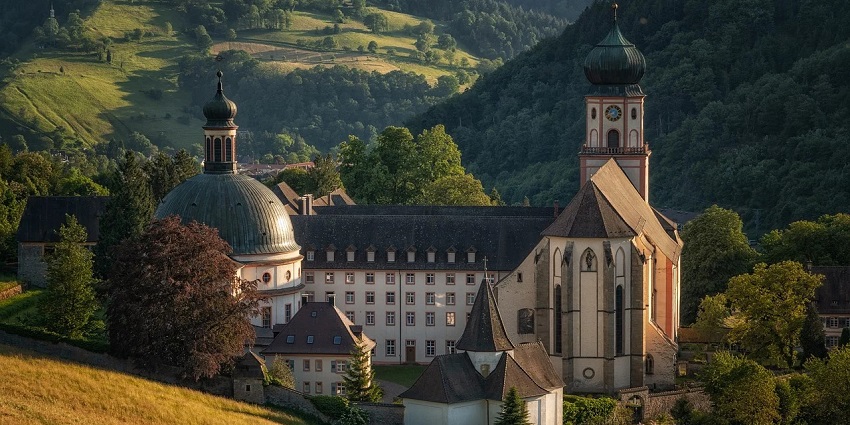
Photo: Tama66 / Pixabay / Image For Representation Only
Reaching the monastery is relatively easy, though the journey requires a bit of planning due to its secluded location:
By Air: The nearest airport is Gaggal Airport in Kangra, approximately 20 kilometres from Jia. Regular flights connect Gaggal to major cities like Delhi and Chandigarh. You can hire a taxi from the airport or take a local bus to reach Jia Village.
By Rail: The nearest railway station is in Kangra, about 17 kilometres from the monastery. Kangra is well-connected to Pathankot, which is a major railhead. Local buses or taxis are available to Jia from Kangra.
By Road: Jia is accessible by road from major towns in Himachal Pradesh. The drive from Dharamshala to Jia takes about an hour, and regular buses and taxis are available.
Suggested Read: Experience The Spiritual Essence Of Tsering Jong Monastery In Himachal Pradesh
Places To Visit Around Jia Monastery
While Jia Monastery is the main attraction, several nearby sites are worth exploring to enhance your spiritual and cultural experience.
1. Masroor Rock Cut Temple
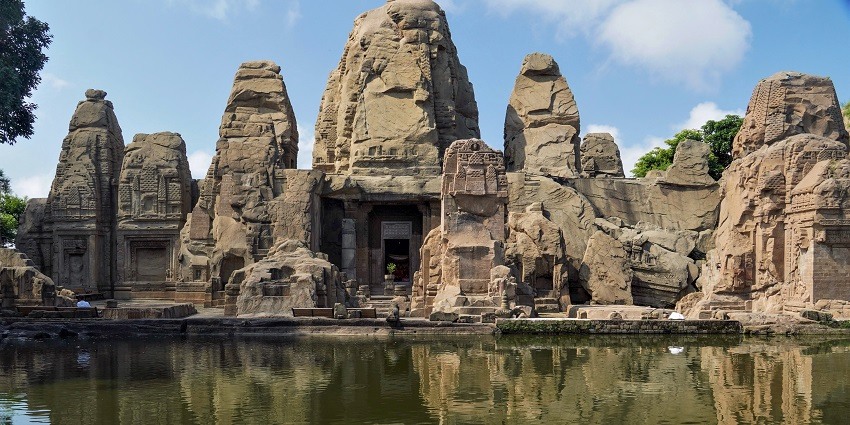
Photo: Dhruvaeng / Wikimedia Commons
Located approximately 30 kilometres from the monastery, the Masroor Rock Cut Temple is a remarkable archaeological site. This 8th-century temple complex, carved out of a single rock, is dedicated to Lord Shiva and is often compared to the famous Ellora Caves. The intricate carvings and stunning architecture of the temples are a testament to the craftsmanship of ancient India. The temple complex is surrounded by lush greenery and a serene lake, offering a peaceful environment for meditation and contemplation.
Timings: 8 AM – 5 PM
Entry Fee: ₹20 for Indians, ₹100 for foreigners
2. Kangra Fort
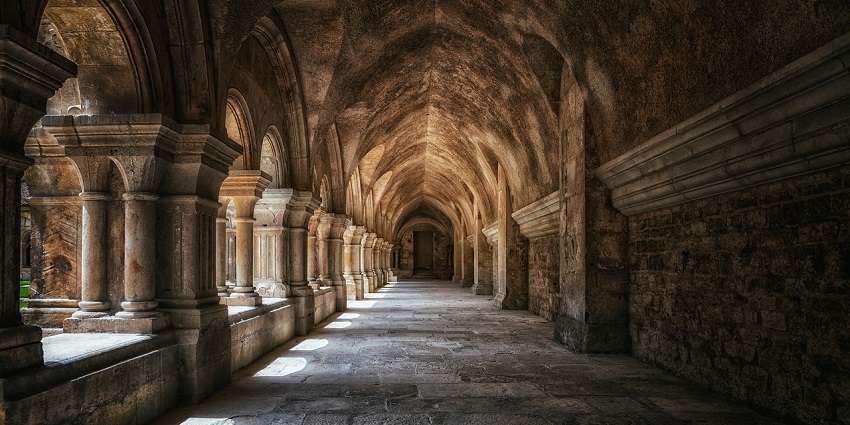
Photo: Tama66 / Pixabay / Image For Representation Only
Kangra Fort, located about 20 kilometres from the monastery, is one of the oldest forts in India, dating back to the 4th century BC. The fort has witnessed many historical events and battles, making it a significant site for history enthusiasts. The fort offers panoramic views of the surrounding valleys and the Beas River, and its ancient architecture, with its gates and watchtowers, provides a glimpse into the region’s rich past. A museum inside the fort showcases artefacts and exhibits related to the history of the Kangra Dynasty.
Timings: 9 AM – 6 PM
Entry Fee: ₹150 for Indians, ₹300 for foreigners
Suggested Read: Visit Namgyal Monastery And Explore Nearby Attractions
3. Kareri Lake
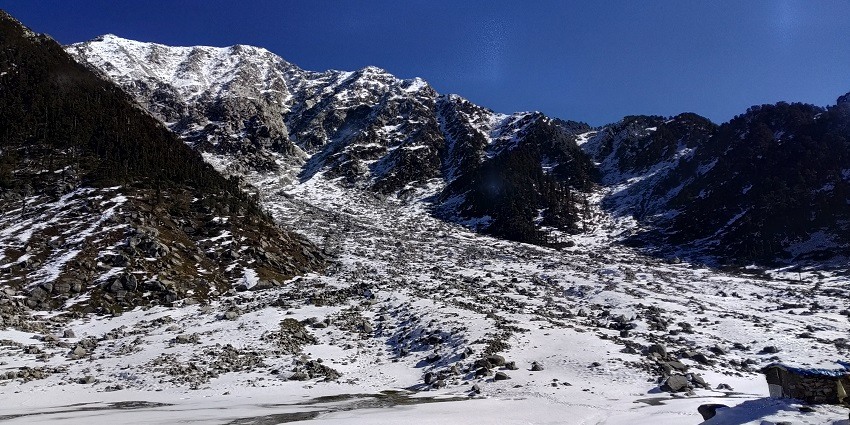
Photo: Pulkitgautam1 / Wikimedia Commons
Kareri Lake is a high-altitude, shallow, freshwater lake located about 35 kilometres from the monastery. Surrounded by dense forests and the Dhauladhar range, the lake is a popular trekking destination. The trek to Kareri Lake offers a mix of challenging terrains, scenic landscapes, and a chance to experience the local culture. The crystal-clear waters of the lake, reflecting the surrounding snow-capped peaks, create a picture-perfect setting for nature lovers and photographers. Camping by the lake under a starlit sky is an unforgettable experience.
Timings: 24*7
4. Chamunda Devi Temple
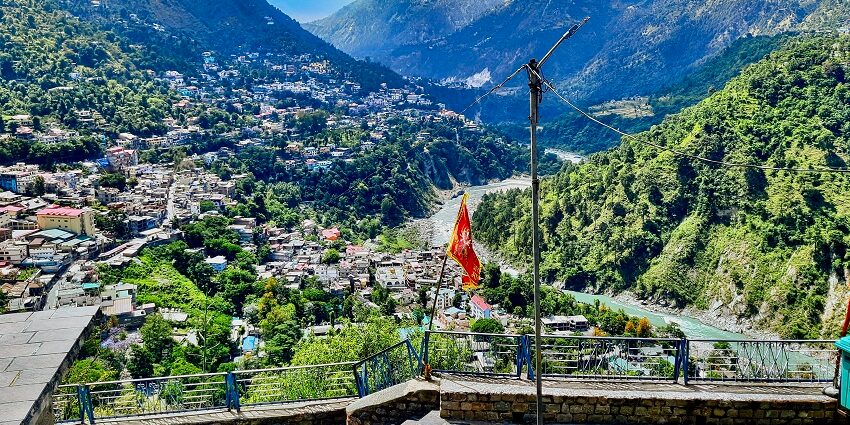
Photo: Ms Sarah Welch / Wikimedia Commons
Chamunda Devi Temple, located 18 kilometres from the monastery, is a revered Hindu temple dedicated to Goddess Chamunda, an incarnation of Goddess Durga. The temple is situated on the banks of the Baner River and is surrounded by a dense forest, adding to its spiritual ambience. Pilgrims visit the temple to seek blessings and to enjoy the serene environment. The temple complex has a library that houses ancient manuscripts and texts related to Hinduism, making it a place of religious and historical significance.
Timings: 6 AM – 9 PM
Suggested Read: Discover Rewalsar Monastery And Immerse In Its Spiritual Serenity
5. Dharamshala And McLeod Ganj
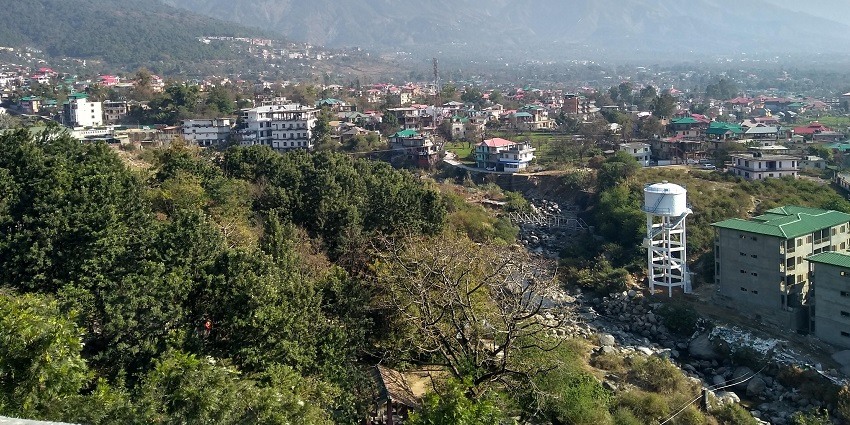
Photo: Amit Phulera / Wikimedia Commons
About 40 kilometres from Jia Monastery, Dharamshala and McLeod Ganj are twin towns that serve as the hub of Tibetan culture in India. McLeod Ganj is the residence of the Dalai Lama and the centre of the Tibetan government-in-exile. Visitors can explore monasteries, temples, and cultural institutions. The vibrant streets of McLeod Ganj are lined with cafes, shops, and restaurants offering Tibetan cuisine and handicrafts. Dharamshala, with its colonial-era charm, offers picturesque views and tranquil spots for relaxation.
Must-Visit Attractions: Namgyal Monastery, Tibetan Museum
Where To Stay
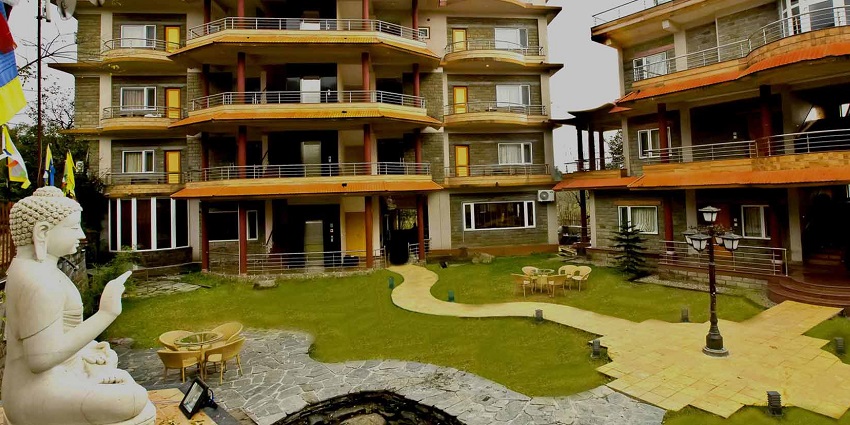
Photo: Hotelhimalayan / Wikimedia Commons / Image For Representation Only
When visiting the monastery, several accommodation options cater to different tastes and budgets. For those seeking a traditional experience, the Jia Guesthouse offers basic amenities with a touch of local charm. The guesthouse is near the monastery, providing easy access to spiritual activities.
If you prefer more comfort, Hotel Kangra Heights in Kangra offers modern amenities, including Wi-Fi, a restaurant, and well-furnished rooms, making it a convenient base for exploring the region. For a luxury stay, The Pavilion Dharamshala offers a blend of contemporary comfort and traditional hospitality, with stunning views of the Dhauladhar range.
Suggested Read: Explore The Spiritual Serenity Of Kungri Monastery In Himachal Pradesh
Where To Eat
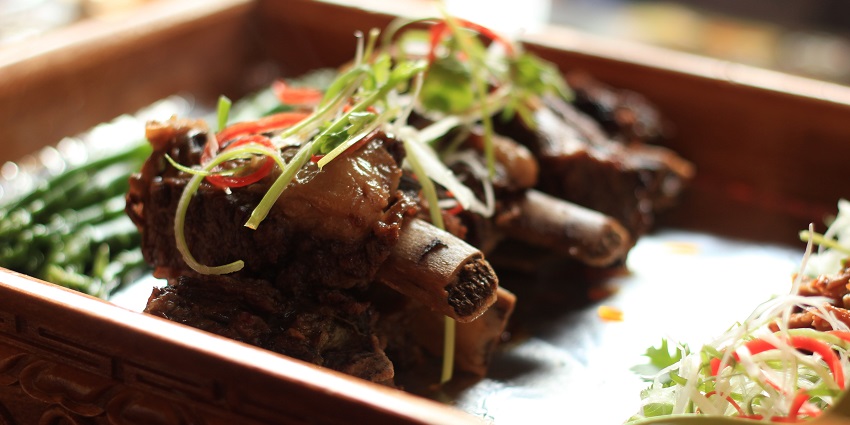
Photo: Yuhanlikefilm / Wikimedia Commons / Image For Representation Only
Jia Village and its surrounding areas offer a modest but satisfying culinary experience. Jia Café, near the monastery, serves simple, home-cooked meals, including traditional Tibetan dishes like momos and thukpa. For a more extensive menu, Kangra Diner in Kangra town offers a variety of Indian and Tibetan dishes, making it a popular stop for travellers. In McLeod Ganj, you can explore several cafes and restaurants that serve authentic Tibetan cuisine, such as Tibet Kitchen and Lung Ta Japanese Restaurant, known for their delicious and affordable meals.
Best Time To Visit Jia Monastery
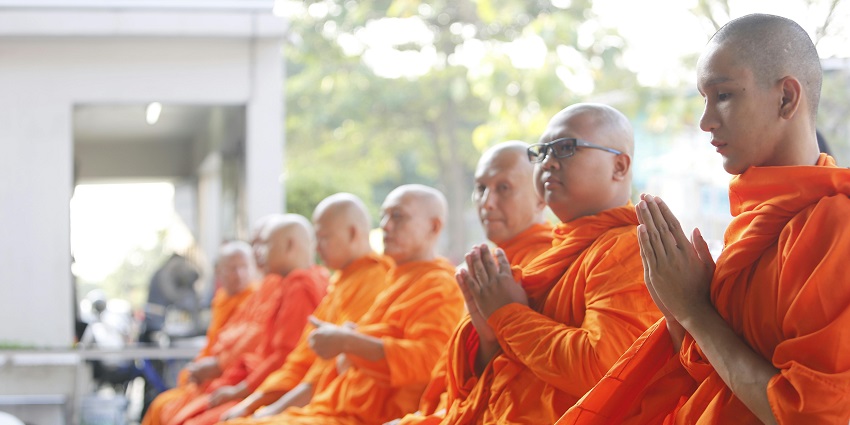
Photo: Washarapol D BinYo Jundang / Pexels / Image For Representation Only
The best time to visit the monastery is from March to June and September to November. Spring (March to June) is a delightful time to visit, with blooming flowers and pleasant temperatures making outdoor activities enjoyable. The monsoon season (July to August) sees heavy rainfall, which might be an obstacle for travel plans, but the lush greenery during this period is breathtaking.
Autumn (September to November) offers clear skies and cooler temperatures, providing an ideal environment for trekking and exploring the surrounding areas. The winter months (December to February) can be cold, with occasional snowfall, making it a good time for those who enjoy winter landscapes and quieter surroundings.
Suggested Read: Dharamshala Monasteries To Visit On Your Next Vacation
Other Factors To Consider

Photo: Kathryn Greenhill / Wikimedia Commons / Image For Representation Only
Average Cost Of The Trip
Transportation costs vary depending on the mode of travel, with local buses being the most economical option. Hiring a taxi from Kangra or Dharamshala is more convenient but costs more. Accommodation costs range from budget guesthouses to mid-range hotels, with prices starting at around ₹800 per night. Meals at local eateries are affordable, with a simple meal costing between ₹100 and ₹300. Also, entry to most attractions around the monastery is either free or has a nominal fee.
Tips For Travellers
- The monastery is a place of worship and spiritual practice so maintain silence and respect the monks and local devotees.
- While photography in the monastery is generally allowed, avoid using flash, especially during prayer sessions. Some areas may have restrictions on photography, so be sure to check with the monastery authorities.
- The weather in the Himalayas can be unpredictable. Carry layers of clothing, including a warm jacket, even if you visit during the warmer months. Rain gear is essential if you are visiting during the monsoon season.
- The high altitude and treks around Jia can be physically demanding. Carry water and snacks to keep yourself hydrated and energised during your exploration.
Jia Monastery offers a peaceful retreat in the lap of the Himalayas, where spirituality and nature come together to create a serene atmosphere. Whether you’re seeking a spiritual experience, an adventure in nature, or simply a break from the chaos of daily life, this place provides a perfect escape. Plan your visit to Himachal Pradesh with TripXL and discover the timeless beauty and serenity of the region.
Cover Photo: Quang Nguyen Vinh / Pexels / Image For Representation Only


 WhatsApp
WhatsApp
 Twitter
Twitter









